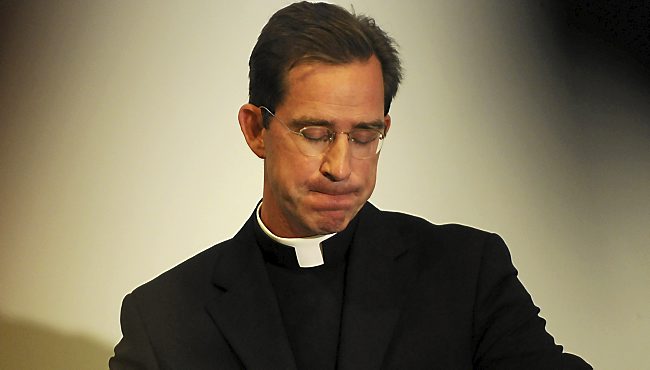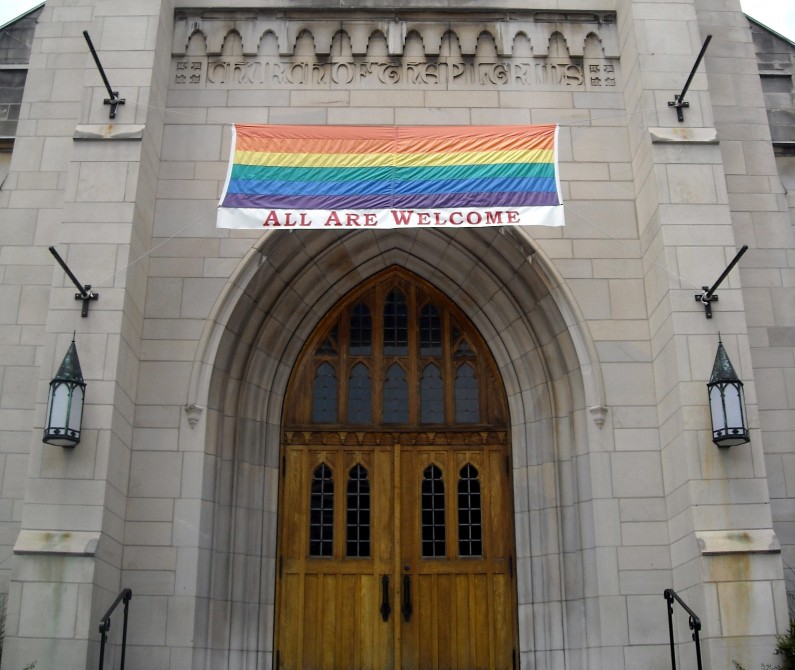Peter Laird resigned as then-archbishop’s aide as abuse scandal exploded in 2013.

Peter Laird, the former vicar general of the Archdiocese of St. Paul and Minneapolis during the controversial tenure of Archbishop John Nienstedt, has left the priesthood.
Laird spent nearly 20 years in high-profile roles in the archdiocese. He abruptly resigned as second-in-command in October 2013, a day following courtroom allegations that the archdiocese had mishandled the case of a priest found to possess pornography.
It was the start of a clergy abuse scandal that rocked the diocese for the next three years.
Laird, who later said he urged Nienstedt to resign as well, was among a handful of clergy in Nienstedt’s inner circle, evaluating church responses to clergy abuse allegations and other matters. He petitioned the Vatican for removal from the priesthood in January 2014.
“I have recently been informed that the Holy Father has granted Peter’s request,” wrote Archbishop Bernard Hebda in a March 10 letter to archdiocese priests. “That means that Peter, who had withdrawn from public priestly ministry in 2013, will live as a lay person and will not be able to return to ordinary public ministry without permission of the Holy Father.”
Laird was a rising star in the archdiocese, promoted to be the archbishop’s top deputy in 2009 when he was 43. He is a former theology professor at the University of St. Thomas, a nine-year vice rector at the St. Paul Seminary, former vicar at St. Olaf Church in downtown Minneapolis and former co-chairman of the Archdiocese’s Strategic Planning Committee.
His parents, Stewart and Kathy Laird of St. Paul, also held prominent archdiocese leadership positions over the years.
The Star Tribune was not able to reach Laird for comment. In 2013, after his sudden resignation, he issued this statement:
“I am hopeful my decision to step aside at this time, along with the formation of a new [clergy abuse] task force, can help repair the trust of many, especially the victims of abuse.”
Laird was among a handful of key Nienstedt advisers, including the previous vicar general, the Rev. Kevin McDonough, involved in evaluating issues that included priest misconduct. Both had been criticized for their handling of clergy misconduct allegations by archdiocese whistleblower Jennifer Haselberger.
Laird told attorneys for abuse victims that he had counseled Nienstedt against keeping the former Rev. Curtis Wehmeyer in active ministry. Wehmeyer is now jailed for sexually abusing boys at his St. Paul church. In a 2014 court deposition, Laird said he urged Nienstedt to resign.
“I think leaders have a responsibility to be accountable for decisions whenever they take place in an organization — and to signal trust … and that the archdiocese doesn’t have anything to hide,” Laird said in the deposition.
Laird’s exit from the priesthood underscores the impact of the archdiocese’s decision to keep Wehmeyer in the ministry. Nienstedt resigned in June 2015 after Ramsey County — in an unprecedented move — charged the archdiocese with failure to protect children from Wehmeyer. McDonough became pastor of Incarnation Church/Sagrado Corazon de Jesus in Minneapolis.
Archdiocese spokesman Tom Halden said he did not have information about any archdiocese duties held by Laird over the past three years
Hebda wished the former vicar general well.
“While his priestly ministry will be missed by many, I am hopeful that Pope Francis’ decision will allow Peter to serve out his baptismal calling in new ways,” Hebda said.
Complete Article HERE!




